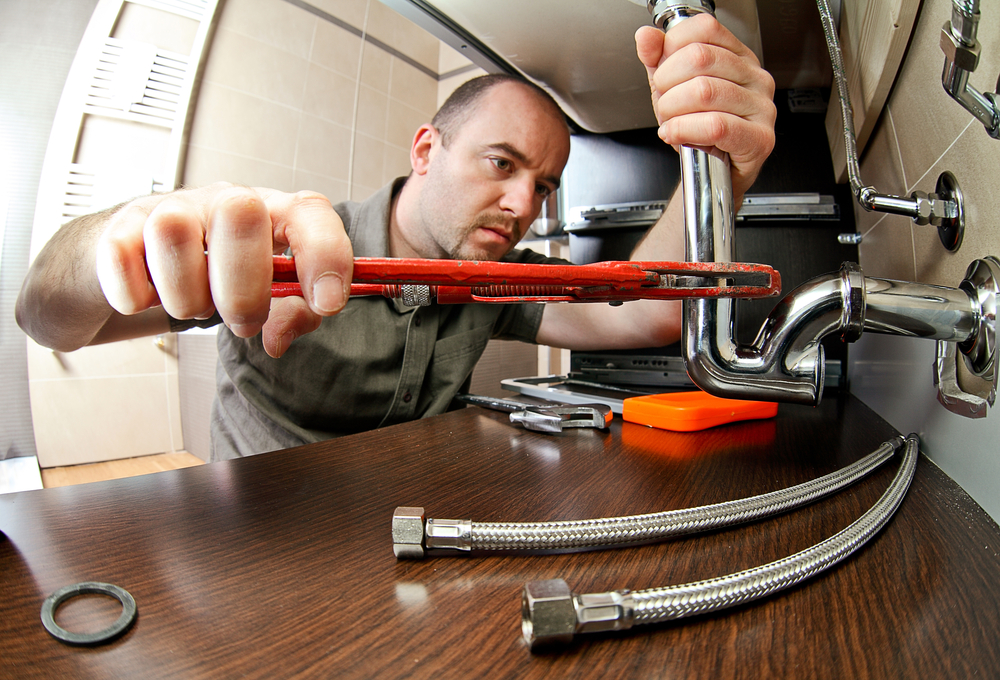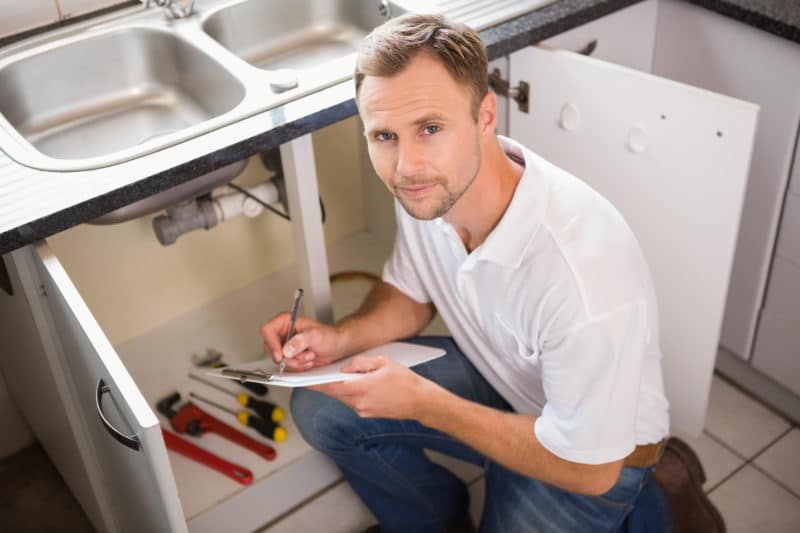Warning: 6 Common Activities That Could Be Harming Your Home Plumbing
Warning: 6 Common Activities That Could Be Harming Your Home Plumbing
Blog Article
This great article down below on the subject of Ways to Make Your Pipes Last Longer is exceptionally interesting. Don't miss out on it.

The trick to durable home appliances, unsurprisingly, appertains upkeep. There's no set regulation that can assure your plumbing devices a lengthy wear, but you can protect against unneeded damages and also fixings by preventing negative plumbing behaviors.
You need to quit doing these 6 things else you'll keep calling your plumber over for minor faults.
Purging everything
Yes, your commode drain leads to the drains, however that doesn't indicate you must unload simply anything away. Many 'flushable' materials are in fact great blockage beginners, for example dental floss. Asides keeping evident non-flushable materials like wires and also plastics out of your bathroom, you need to likewise prevent flushing cotton buds, menstrual products, wipes, daipers and also prophylactics down the commode drainpipe.
Putting grease in the sink
We know properly dealing with grease after a hearty meal is a discomfort. Yet just putting it away can do long-term harm to your pipes. "The fat and grease can block your drain severely enough to force you to call a plumber," explains Dawson. "Plumbing works best when it's well taken care of-- not abused with grease."
Utilizing excessive drain cleaner
Using a drain cleaner more than one or two times a month is an indication that something major is going on within your pipelines. Now, instead of facing the major problem, you go for a quick fix; a carbonated drain cleaner. Rightfully, a drainpipe cleaner will care for the blockage, yet at what cost?
The chemicals in a drain cleanser can hasten the rust of your pipelines. Include that to whatever underlying problem is creating the obstruction as well as you might have to a serious problem on your hands.
If you experience way too many clogs, call your emergency plumber instead of using a drainpipe cleaner.
Not washing recipes before filling them into the dish washer
it's called a dish washer, but tossing in recipes, pots, and pans covered in huge food fragments can actually trigger some severe damages to the appliance, causing lasting troubles down the line. "Homeowners may have to obtain their dishwasher repaired regularly if they don't wash their dishes prior to filling, or a minimum of remove bigger food pieces," explains Audrey Monell, proprietor of Forrest Anderson Plumbing as well as Air Conditioning in Glendale, Arizona. "Food that obtains stuck on dishes triggers the dishwasher to function harder, which can wear down components faster, causing problems."
DIYing whatever
With plumbing, a stitch in time actually does save nine. You can protect against a fullblown plumbing emergency by calling your plumber at the right time.
You may have discovered a couple of plumbing hacks from your papa, but you should understand where to draw a line and also call an expert. For instance, you might have the ability to fix a blockage on your own, but you should not attempt to alter a pipe. You can inequality pipelines or overtighten a screw, triggering even more injury as well as damage than you assumed. Calling a plumber is a secure and also inexpensive choice.
Not changing your dishwashing machine hoses
One easy means to make sure that you utilize your dishwasher for several years is to change the tube a minimum of when in five years. This additionally requests washing maker hoses.
With time, food bits, soap as well as oil can develop obstructions within your pipes. Changing them promptly will prevent any type of presure develop that can damage the interior workings of your dishwashing machine or washing equipment.
An enhanced steel braided pipe does an excellent job of prolonging your maker's usage time.
No winter season precautions
Extreme weather are bad for your pipes, specifically if they're made from steel. You ought to insulate your revealed pipes, and your water storage tank, even if you have a hot water heater. You should likewise turn off your garden pipe shutoff and any other exterior water channels. These networks are outlets for cold; you pipes can begin to freeze from outdoors if you don't.
Ways That Hard Water Affects Your Plumbing And Appliances
CLOGGED DRAINS
Calcium and magnesium from hard water go beyond the drain screen that you clean. Each time water passes through the drain screen, the minerals attach to the sides of the pipes and other hard water deposits. As you continue to use the drain, more of the minerals attach to these deposits, eventually clogging the drain. Most drain cleaners remove only a small amount of the minerals, so the drain continues to run slow and back up water in your sinks, tubs, and showers.
DECREASED WATER FLOW
Do you have a faucet that runs slow even when you increase the water flow at the valve? Hard water deposits not only affect how water runs out of your home but also how water is delivered to your faucets. When calcium, magnesium, and minerals build up in pipes, it slows the flow of water and also builds up pressure inside the pipes that causes a backflow of water.
CORROSION
Calcium and magnesium have properties that are destructive to certain types of metal, many of which are used for plumbing in older homes. The minerals slowly break down the metal in your pipes. This can cause leaks, breaks, and even discolored water. If the corrosive section of the pipe is not repaired and the hard water deposits removed, entire sections of your plumbing may disintegrate. You may end up replacing a large portion of your plumbing system. Corrosion can happen on any metal surface, not just your pipes. Calcium and magnesium can also cause corrosion on your faucets, drains, valves, appliances, and fixtures.
REDUCED WATER QUALITY
You rely on your plumbing system to deliver clean water for cooking, washing your clothes, bathing, and many other daily tasks. Hard water has small particles of minerals in it. The water is safe to drink, but it is not ideal for your appliances. The minerals interfere with how soaps and detergents work to remove dirt, food, oils, and other substances. As a result, you must use more cleaning products, and your appliances have to work harder to clean dishes and clothes.
BROKEN PIPES AND LEAKS
Broken pipes and leaks from hard water happen in two ways. First, hard water is corrosive to the materials that are used in older homes. Eventually, minerals eat through the pipe and create a small opening in the side of the pipe. The opening grows larger and larger until you have a major leak on your hands. Second, the mineral deposits inside the pipes prevent water from flowing through efficiently. If the water is pushed through the plumbing at the same volume, pressure builds up, and eventually, the pipes and connections fail.
ENERGY EFFICIENCY
Hard water and mineral deposits in your plumbing affect the energy efficiency of your appliances, even the older models that do not meet modern standards. When you find a white residue on your dishes or your clothes don’t feel clean, you may find yourself running the wash cycle a second time. This requires more energy use and raises your utility bills. Some newer high-efficiency models of dishwashers and washing machines have sensors that detect when items are clean. Hard water deposits on the dishes or clothes will trigger the sensors and cause the appliance to run longer.
Another way that hard water affects your budget is the investment you make in products for hard water deposits. Rather than spending your money on higher utility costs and household products, invest in a water softening system from Beyer Plumbing Co. to prevent the problems of hard water.
WEAR AND TEAR
Hard water deposits build up on the connections, drains, and jets in your washer or dishwasher that circulate the water and clean your clothes and dishes. As a result, water may collect inside your appliances, creating the ideal environment for corrosion, mold, and other damaging substances. The components break down sooner, and your appliances may not last as long as expected. In some cases, the lifetime of an appliance may be reduced by three or four years simply due to hard water deposits. Using soft water in your appliances ensures that you get the maximum return on your investment.
https://beyerplumbing.com/9-ways-that-hard-water-affects-your-plumbing-and-appliances/

I was made aware of that editorial on Don’t Let an Earthquake Damage Your Plumbing through a good friend on another web page. Liked our posting? Please share it. Let somebody else check it out. I thank you for reading our article about Can Hard Water Ruin Your Appliances?.
Book-Now Report this page